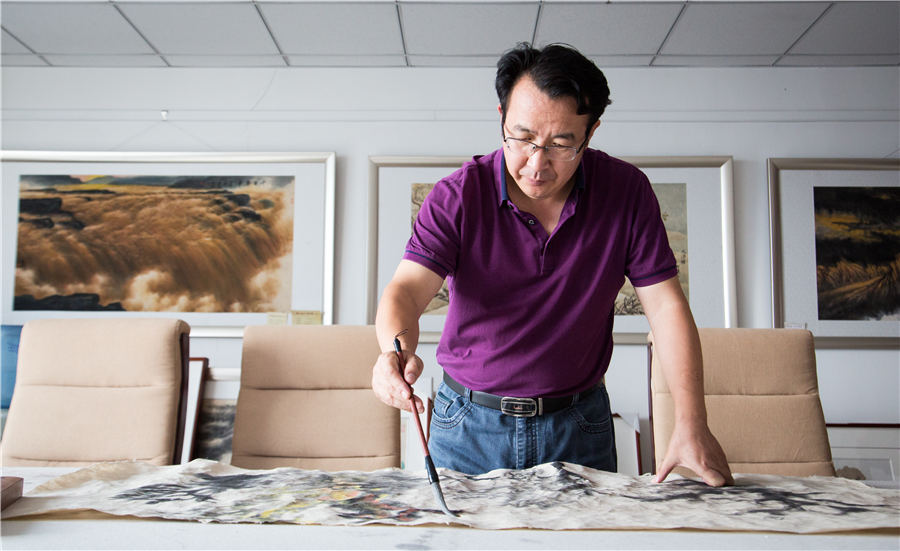
The handmade mulberry paper in Xinjiang Uygur autonomous region exemplifies the traditional Chinese paper-making technique. Known for its resilience and high corrosion resistance, it documents many ancient cultural exchanges between China and countries in Asia and Europe. In recent years, many artists use this paper as canvas to bring this cultural heritage back into the public eye. [Photo provided to chinadaily.com.cn]
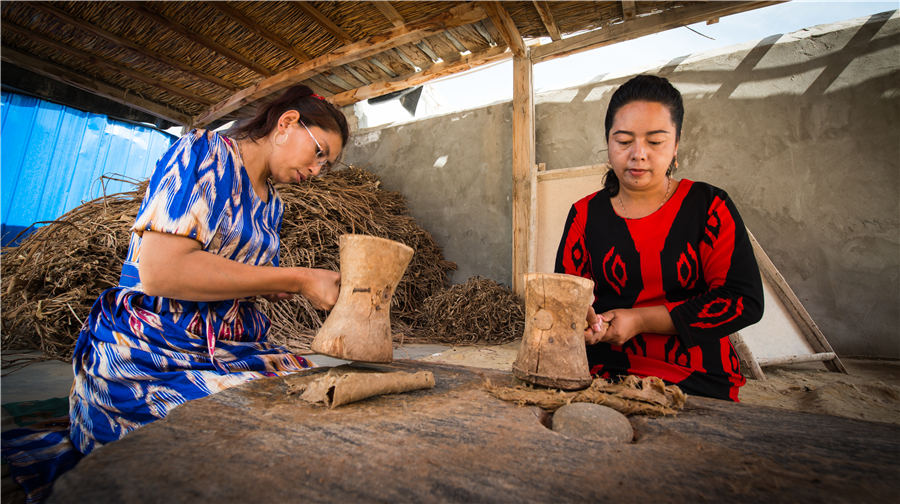
The handmade mulberry paper in Xinjiang Uygur autonomous region exemplifies the traditional Chinese paper-making technique. Known for its resilience and high corrosion resistance, it documents many ancient cultural exchanges between China and countries in Asia and Europe. In recent years, many artists use this paper as canvas to bring this cultural heritage back into the public eye. [Photo provided to chinadaily.com.cn]
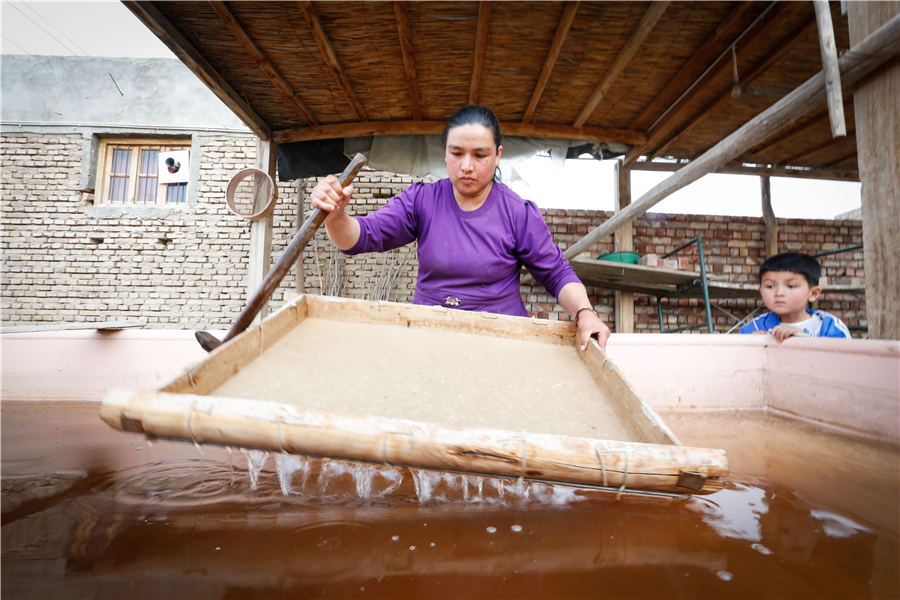
The handmade mulberry paper in Xinjiang Uygur autonomous region exemplifies the traditional Chinese paper-making technique. Known for its resilience and high corrosion resistance, it documents many ancient cultural exchanges between China and countries in Asia and Europe. In recent years, many artists use this paper as canvas to bring this cultural heritage back into the public eye. [Photo provided to chinadaily.com.cn]
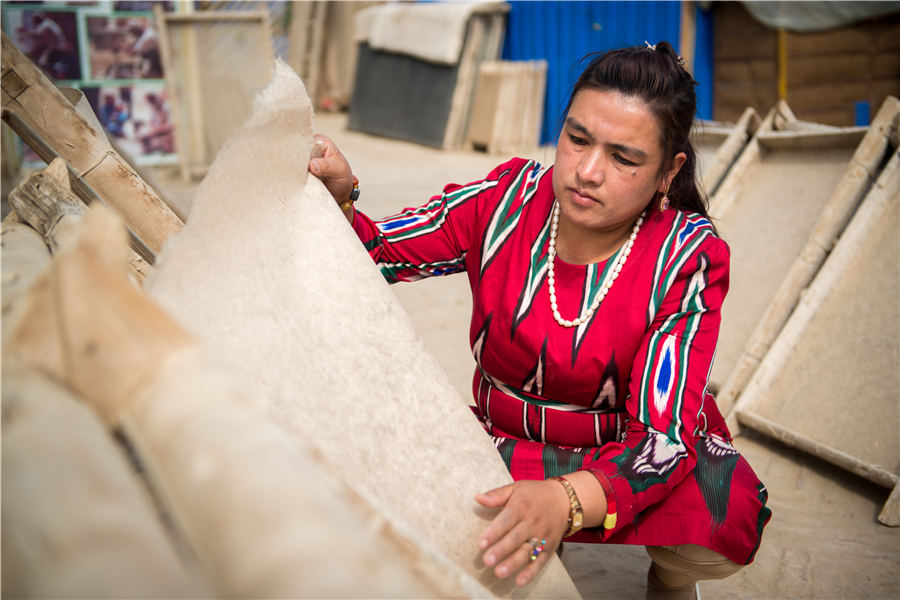
The handmade mulberry paper in Xinjiang Uygur autonomous region exemplifies the traditional Chinese paper-making technique. Known for its resilience and high corrosion resistance, it documents many ancient cultural exchanges between China and countries in Asia and Europe. In recent years, many artists use this paper as canvas to bring this cultural heritage back into the public eye. [Photo provided to chinadaily.com.cn]
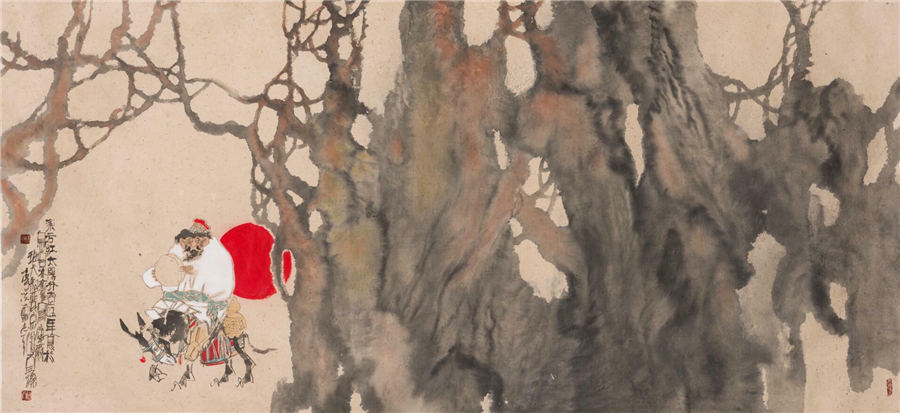
The handmade mulberry paper in Xinjiang Uygur autonomous region exemplifies the traditional Chinese paper-making technique. Known for its resilience and high corrosion resistance, it documents many ancient cultural exchanges between China and countries in Asia and Europe. In recent years, many artists use this paper as canvas to bring this cultural heritage back into the public eye. [Photo provided to chinadaily.com.cn]
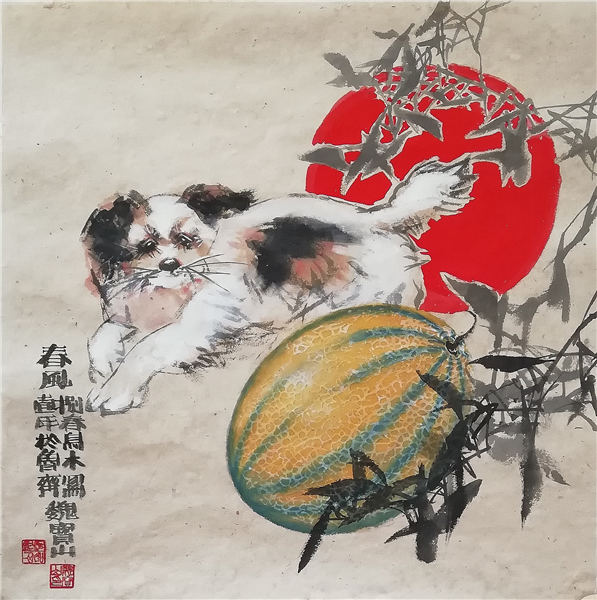
The handmade mulberry paper in Xinjiang Uygur autonomous region exemplifies the traditional Chinese paper-making technique. Known for its resilience and high corrosion resistance, it documents many ancient cultural exchanges between China and countries in Asia and Europe. In recent years, many artists use this paper as canvas to bring this cultural heritage back into the public eye. [Photo provided to chinadaily.com.cn]
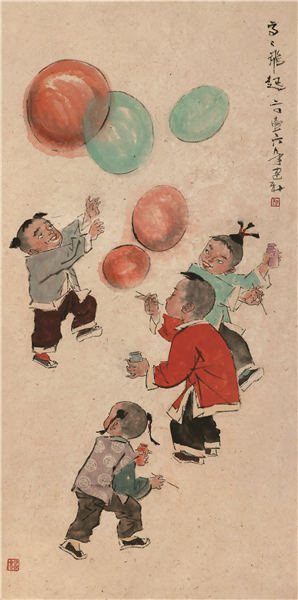
The handmade mulberry paper in Xinjiang Uygur autonomous region exemplifies the traditional Chinese paper-making technique. Known for its resilience and high corrosion resistance, it documents many ancient cultural exchanges between China and countries in Asia and Europe. In recent years, many artists use this paper as canvas to bring this cultural heritage back into the public eye. [Photo provided to chinadaily.com.cn]
